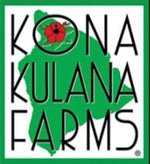How Climate Change is Affecting Kona Coffee Production - Buddha’s Cup



Aloha! E komo mai (Welcome) to Buddha's Cup!
In this article, we want to share with you the profound impact of climate change on Kona coffee production and how we address these challenges.

Kona coffee, known for its exceptional quality and flavor, owes its unique traits to the climate found in the Kona region of Hawaii. The combination of rich volcanic soil, ample rainfall, and mild temperatures creates the perfect environment for cultivating this coffee bean. However, as the global climate undergoes significant changes, so does the delicate balance that sustains Kona coffee.
Climate change is a reality we cannot ignore. The rising temperatures, shifting rainfall patterns, and extreme weather events pose substantial threats to Kona coffee production. These changes disturb the environment that Kona coffee thrives in, affecting its growth and flavor profiles.
At Buddha's Cup, we understand the urgency of this issue and have taken certain measures to mitigate the impact of climate change. Through our sustainability efforts, we strive to protect the Kona coffee ecosystem and ensure the longevity of this crop.

One of our biggest adaptations is transitioning to shade-grown cultivation. By strategically planting trees to provide shade for the coffee plants, we create a microclimate that shields them from excessive heat and reduces evaporation, thus conserving moisture. This practice also promotes biodiversity by providing habitat for birds and other wildlife.
By controlling the amount of water provided to the coffee plants, we reduce waste and ensure that every drop counts - which, when you only have 70 inches of rain a year, is harder than it looks! Water scarcity is also a growing concern in many coffee-growing regions, and our irrigation practices help mitigate this challenge while maintaining the quality of our coffee.
Furthermore, we prioritize soil health and fertility through the use of organic fertilizers and composting. Healthy soil not only provides essential nutrients to the coffee plants but also acts as a carbon sink, helping to offset greenhouse gas emissions. This way, we contribute to the long-term viability of Kona coffee production and minimize our environmental footprint.
Lastly, we actively participate in reforestation initiatives. Trees play an important role in lightening the effects of climate change by absorbing carbon dioxide and releasing oxygen. Planting trees in deforested areas helps restore vital ecosystems.

That being said, combating climate change requires collective action. To our customers, we encourage you to join us in practicing sustainability. Choosing ethically sourced and locally grown coffee means you support farmers who prioritize environmentally friendly methods. Small changes in your daily coffee routine, such as using reusable cups or composting coffee grounds, can make a big difference in promoting sustainability!
Check out all our current promotions.
As you support other businesses that fight climate change, consider exploring other eco-conscious initiatives and spread awareness about sustainable practices. Together, we can make a difference.
Mahalo nui loa (Thank you very much) for joining us on this journey. A hui hou (Until we meet again)!

FAQs
How does climate change affect the flavor of Kona coffee?
Climate change changes the weather patterns and temperature conditions in Kona, which can have a direct impact on the flavor of Kona coffee. Rising temperatures may lead to higher acidity and changes in the bean's chemical composition, resulting in different flavor profiles.
Are there any specific pests or diseases that pose a threat to Kona coffee due to climate change?
Climate change can create more favorable conditions for pests and diseases, which can harm Kona coffee crops. For instance, higher temperatures may invite pests like coffee berry borers, while changes in precipitation patterns may invite fungal diseases such as coffee leaf rust.
How does Buddha's Cup support farmers in adapting to climate change?
We provide educational resources and guidance on sustainable farming practices that help soften the impact of climate change. Additionally, we often engage with farmers, offering assistance in implementing shade-grown cultivation, optimizing irrigation techniques, and adopting organic soil management practices.










